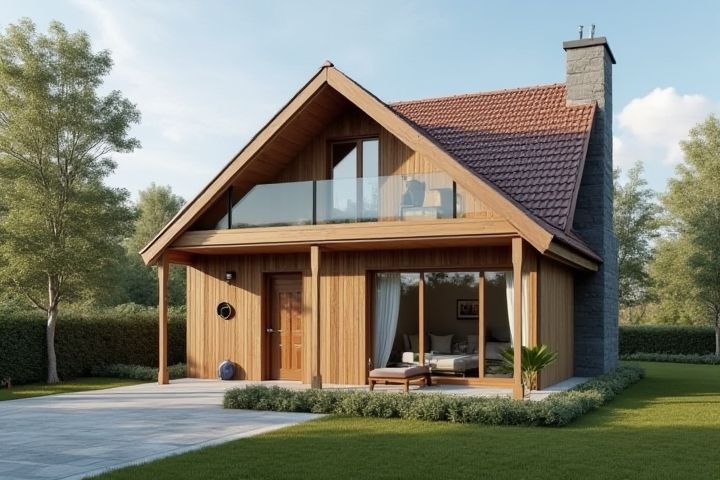
Converting a house into apartments can be a lucrative investment opportunity, but it requires careful planning and adherence to local zoning laws and building regulations. You must assess the property's layout, ensuring sufficient space for multiple units and adequate facilities such as kitchens and bathrooms. Structural modifications may be necessary to create separate entrances, increase insulation, and ensure safety measures are in place, including fire exits. Your renovations should also consider potential tenant needs, incorporating amenities like laundry facilities and parking options. Engaging with an architect or contractor specialized in residential conversions can provide valuable insights into cost-effective design and compliance strategies.
Can You Convert A House To Apartments
Zoning regulations
Converting a house into apartments involves understanding local zoning regulations, which dictate land use and building modifications. These regulations may specify minimum lot sizes, density limits, and setback requirements, impacting your ability to create rental units. Additionally, you must comply with building codes that address plumbing, electrical systems, and safety standards to ensure the apartments meet habitability requirements. Always check with your local zoning office or planning department to obtain the necessary permits and ensure your conversion project aligns with community guidelines.
Building permits
Converting a house into apartments requires obtaining specific building permits to ensure compliance with local zoning laws and construction regulations. Engage with your local building department to determine the necessary permits, which often include a change of use permit, building permit, and possibly a zoning variance depending on the property's location and intended conversion. You may also need to submit architectural plans and undergo inspections during the renovation process to guarantee safety and adherence to codes. Thoroughly understanding these requirements can streamline your project and help avoid costly delays or legal issues.
Structural integrity
Converting a house into apartments requires a thorough assessment of structural integrity, including load-bearing walls, foundation stability, and overall building strength. It is essential to evaluate the existing framework to determine if it can support multiple living units without compromising safety or comfort. You may need to reinforce walls, add new beams, or even modify the roof structure to accommodate separate living spaces effectively. Engaging a qualified structural engineer ensures that all modifications meet local building codes while maintaining the building's durability and longevity.
Utility separation
Converting a house into apartments requires careful attention to utility separation for optimal functionality and compliance with local regulations. Each unit will need its own dedicated electrical, gas, water, and internet connections to ensure independent living for each tenant. Installing separate meters for utilities facilitates accurate billing and helps tenants manage their consumption effectively. You should also consult with a licensed contractor and local planning authority to ensure that all modifications meet building codes and zoning laws.
Fire safety compliance
Converting a house into apartments requires meticulous attention to fire safety compliance and regulations. You must install fire-resistant materials for walls, ceilings, and floors to create safe separations between units. Equipping each apartment with smoke detectors, fire alarms, and easily accessible exit routes is crucial to enhance tenant safety. Regular inspections and adherence to local building codes will ensure that the property meets the necessary fire safety standards.
Parking requirements
Converting a house to apartments typically involves adhering to specific parking requirements set by local zoning laws. You must assess the number of residential units you plan to create, as this will dictate your parking obligations, which often include a designated number of parking spaces per unit. For example, urban areas might require one space per unit, while suburban locales might mandate more. It's essential to evaluate your property's available space to ensure compliance, possibly considering options like driveway expansions or incorporating parking garages.
Soundproofing
Converting a house into apartments requires careful consideration of soundproofing to ensure privacy and comfort for residents. Utilizing materials like resilient channels, acoustic foam, and soundproof drywall can reduce noise transmission between units by up to 90%. Implementing double-glazed windows and solid-core doors can further enhance noise control, creating a tranquil environment. You should also consider the layout and placement of shared walls to minimize sound disruption between apartments.
Cost estimation
Converting a house into apartments involves various cost factors, including structural modifications, plumbing, electrical updates, and compliance with local zoning laws. Depending on the size and condition of the original property, renovations may range from $50,000 to $200,000 or more. Significant expenses will arise from creating individual units, which may include adding separate entrances, kitchens, and bathrooms, potentially increasing your total investment. It's crucial to conduct a detailed cost analysis and possibly consult with a contractor to accurately estimate the total budget necessary for your conversion project.
Property valuation
Converting a house into apartments can significantly impact property valuation, with the potential to increase rental income and overall property worth. Factors such as location, zoning regulations, and market demand play crucial roles in determining the feasibility and profitability of this conversion. Conducting a thorough comparative market analysis (CMA) allows you to assess similar properties and understand the potential rental yields. Consulting with a professional appraiser can further provide insights into how the conversion will affect your property's market value, ensuring your investment aligns with your financial goals.
Market demand
Converting a house into apartments can be a lucrative investment, particularly in urban areas where the demand for rental units is high. Research indicates that cities with a population density exceeding 10,000 residents per square mile often experience a 20% increase in rental prices year over year. You can assess local market trends by analyzing vacancy rates, which ideally should be below 5% to signify a strong demand for housing. Furthermore, understanding zoning regulations and potential renovation costs is essential, as these factors can significantly impact your return on investment.
